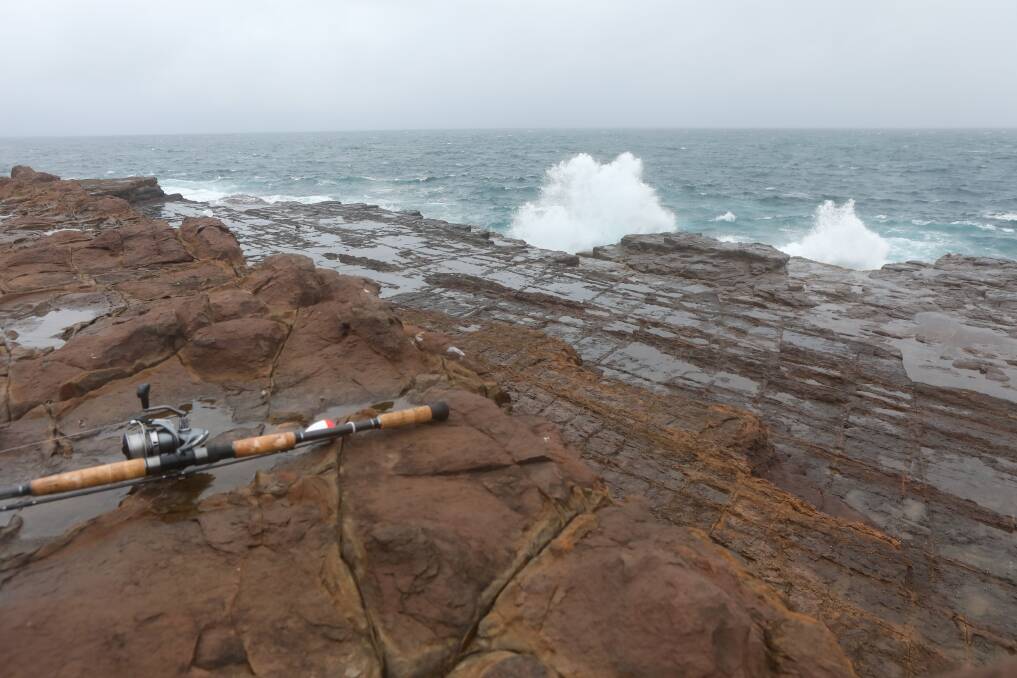
Wollongong City Council has supported the wearing of life jackets at Hill 60 but will not make them compulsory, as it looks at ways to avoid further tragedy at the popular rock fishing site.
A motion brought by Deputy Lord Mayor Tania Brown in response to the recent deaths of five people at the site was carried unanimously at the council's ordinary meeting this week.
Council staff will engage with the state government and relevant agencies about ways to improve safety, and a council delegation plans to meet with the relevant state ministers to discuss the issue.
The council will receive a report on Randwick City Council's trial mandatory life jackets for rock fishers and the implications for council, as well as a community consultation plan.
Councillors have also formally endorsed the wearing of life jackets for rock fishers within the Wollongong City area, and will write to NSW Ports in support of reopening the northern breakwall at Port Kembla, a popular fishing location.
Local fisher Spyros Vassiliades told the councillors on Monday that he had been rock fishing for almost 25 years, and the major issues at Hill 60 were inexperience, large numbers, and a lack of safe alternatives.
"The experience levels of many on the rocks on those days [the deaths occurred] were such that they couldn't effectively determine and understand the risks that they were undertaking," Mr Vassiliades said.
Mr Vassiliades said gates did not work and could push people to potentially more dangerous locations.
Life jackets could help some, he said, but they also led to people being smashed against the rocks and unable to swim from danger, and he feared they lulled the inexperienced into a false sense of security.
Mr Vassilades said the loss of Port Kembla's jetties and the closure of the northern breakwall due to COVID-19 had likely contributed to the tragedies.
In the wake of the recent tragedies, Cr Tania Brown said it had become apparent that there was a lot of confusion around who held policy responsibility for these coastal locations, who could make life jackets mandatory, who was responsible for education, and who could issue fines.
But the council could not abdicate responsibility if it was happening in its community, she said, and it needed to work with the state government.
However, Cr Brown said she believed the council needed to gather evidence instead of making "arbitrary and ad hoc decisions".
Cr Ann Martin suggested putting up safety signage in languages other than English could be a quick response to concerns.
"It is clear that a number of the people who are going down there don't have a good grasp of English, or may not understand the symbolism of some of the imagery," she said.
She also suggested working with caravan parks, tackle shops and the like on educating people about the risks involved, in the same way international students studying at the university were educated about beach safety.
Writing to NSW Ports about reopening the northern breakwall was put forward by Cr Cameron Walters, who also suggested the possibility of signage with QR codes that took fishers to websites with localised, up-to-date information in a number of languages.
Cr David Brown, an experienced fisher himself, said requiring a life jacket in a particular location sent a message about the danger.
He theorised that many continued to fish in dangerous conditions, because of the effort they had made to get there.
To address this problem, Cr Janice Kershaw suggested the possibility of alerting travelling fishers to dangerous conditions before they arrived, in the same way electronic signage was used to advise beachgoers of congestion.
Cr Leigh Colacino said life jackets could keep people afloat if they broke a bone or were knocked unconscious, and helped protect rescuers, too.
While Mr Vassilades told the council that locking people out of places could forced them to more dangerous spots, Cr Cath Blakey said lock-outs needed to be explored as a possible option, with people rock fishing at night when they could not see.
Lord Mayor Gordon Bradbery proposed the variation to the motion that the council endorse the wearing of life jackets.
"I don't think we can walk away tonight and form a committee. The community expects some sort of response out of us, and I think there needs to be some sort of immediate response, as well as ongoing," Cr Bradbery said.
Both he and Cr Tania Brown said the state government needed to take the lead on the issue.

